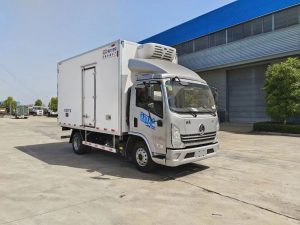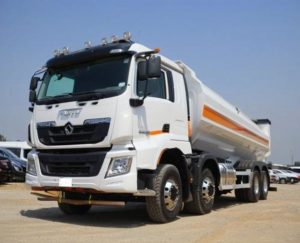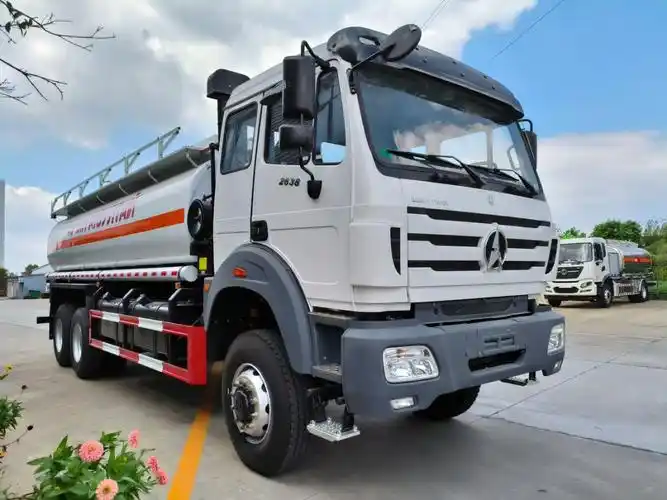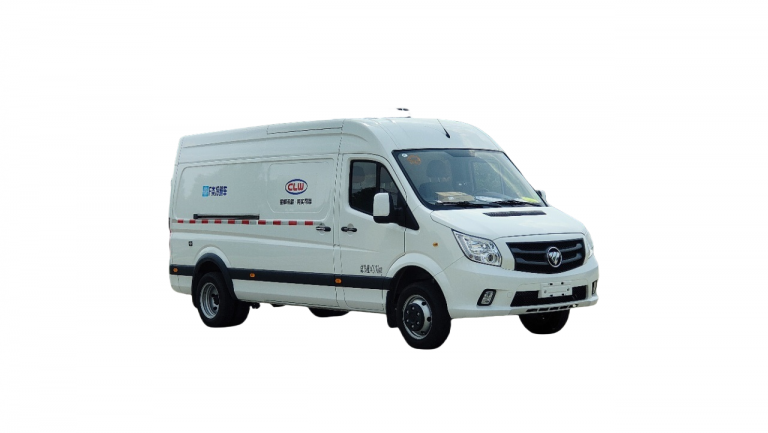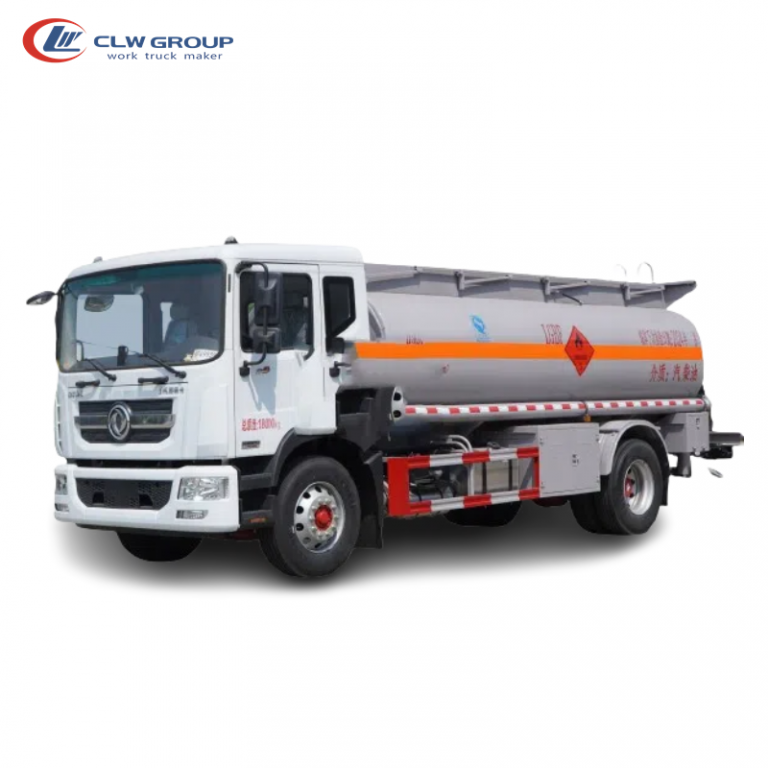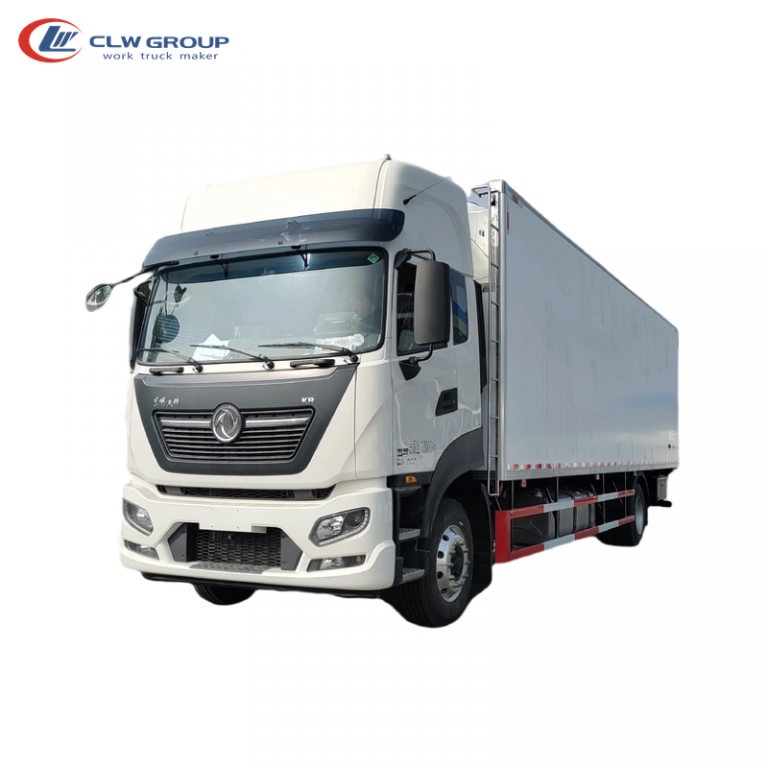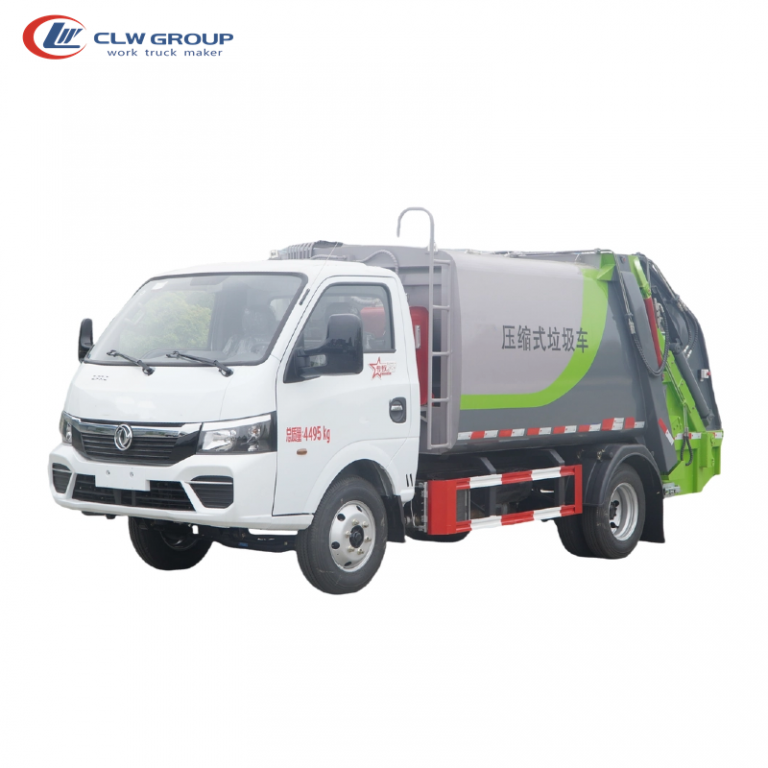Table of Contents
Toggle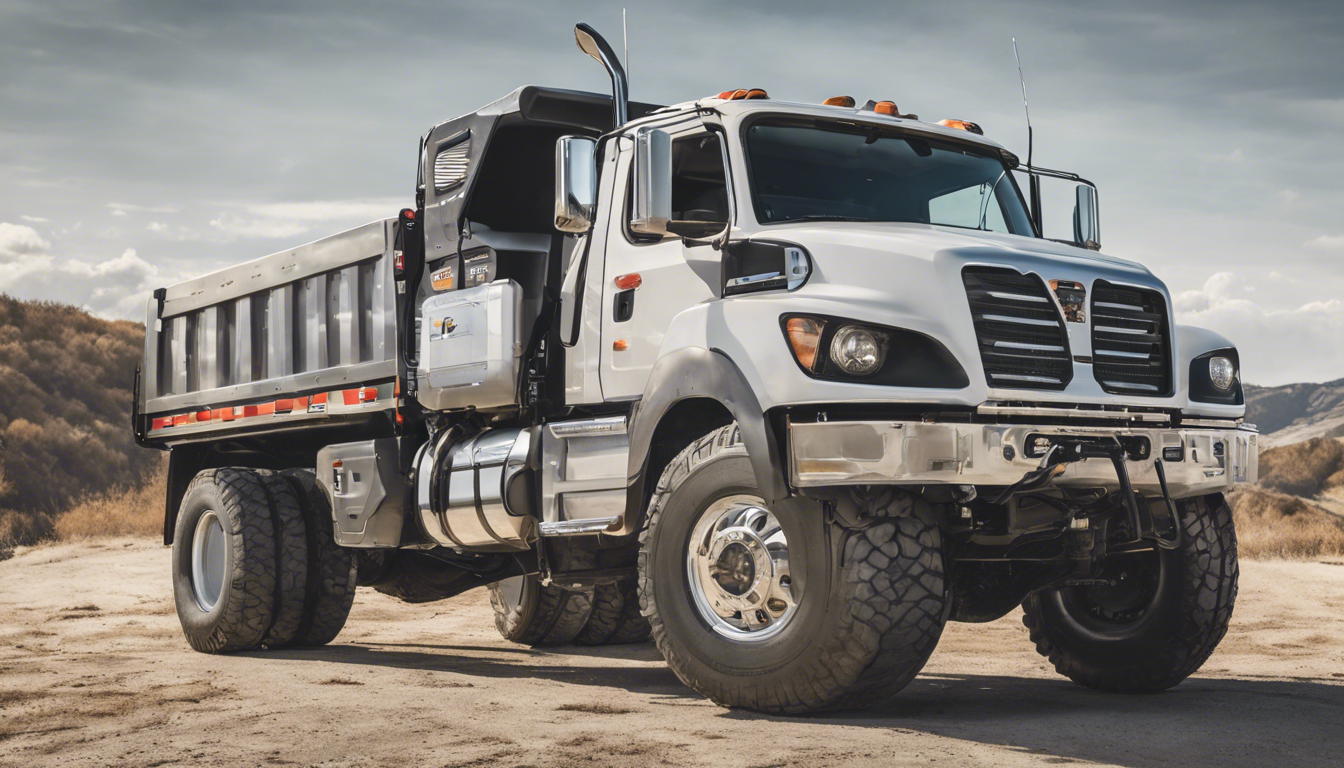
Finding the perfect work truck is pivotal for any professional or company that relies heavily on transporting goods, equipment, or conducting field services. Identifying the right work trucks for sale involves more than just budget considerations; it demands a comprehensive understanding of your needs, the vehicle’s specifications, and its capability to endure the rigors of daily tasks. Consequently, the quest for the ideal work truck becomes not just a purchase but an investment in efficiency and reliability. This importance underscores the need for meticulous selection, making the search for work trucks for sale both crucial and challenging.
To navigate this complex process, the article will first guide readers through identifying their specific needs, from the size of the load to the type of work the truck will be used for. Following this, it will delve into considering key specifications that can impact performance and usability. Fuel efficiency, a major operational cost factor, will be evaluated next, alongside the importance of reliability and maintenance costs in ensuring long-term value. Modern features that enhance functionality and comfort will also be explored, as will the value of real-world feedback from current users. Finally, strategies for utilizing online marketplaces effectively and best practices for the purchasing process will be discussed. This roadmap aims to equip potential buyers with the knowledge to find the best work trucks for sale, aligning their investment with their professional needs and budget constraints.
Identify Your Needs
Understanding the primary purpose of a work truck is crucial for any business or individual considering a purchase. Work trucks are designed to perform essential tasks such as transporting products, moving supplies, and towing trailers. The main reason to invest in a work truck is its ability to handle large amounts and heavy weights efficiently. This capability is not just about the space a truck provides but also its power and durability. Trucks are built to withstand long distances and heavy loads without compromising on performance.
Determining key features that align with specific business needs is equally important. Here are several factors to consider:
- Payload Capacity: It is essential to estimate how much weight will be carried in the truck and truck bed. Different trucks are designed to handle various loads, so selecting one that meets specific payload requirements is vital.
- Towing Capacity: For businesses that need to haul additional supplies or equipment, understanding the towing capacity is crucial. This will influence the type of truck needed to safely and effectively tow the required loads.
- Gross Combined Weight Rating (GCWR): This metric helps determine the total weight a truck and a fully loaded trailer can handle. Knowing the GCWR is important for businesses that operate with significant loads.
- Cab Configuration: The number of crew members that need to be accommodated will dictate the cab configuration. Options typically include regular cab, extended cab, and crew cab, each offering different space capacities.
- Drivetrain and Fuel Type: Choosing between 4×2, 4×4, and other drivetrain options should be based on the typical driving conditions expected. Additionally, the choice between diesel and gasoline can affect power, fuel economy, and operational costs.
- Operational Environment: The environment in which the truck will operate also plays a critical role. For instance, trucks used in urban areas may prioritize maneuverability, while those in hilly terrains might require more torque and horsepower.
By carefully considering these aspects, businesses and individuals can select work trucks that not only meet their current needs but also offer flexibility for future requirements. This approach ensures that the chosen work truck serves as a reliable and efficient tool for their operations.
Consider Key Specifications
When selecting work trucks for sale, it is critical to consider key specifications that impact their performance and suitability for specific tasks. Two crucial aspects to examine are the payload and towing capacity, as well as the engine power and fuel type.
Payload and Towing Capacity
The payload capacity of a work truck is defined as the maximum weight that can be safely loaded into the truck’s cargo area beyond its empty weight, known as the curb weight. This capacity is crucial for determining how much equipment, materials, or goods the truck can transport. For instance, the payload capacity for a 2018 Chevy Silverado ranges from 1,739 to 2,018 lbs, which indicates the weight it can handle in addition to its own weight without a trailer.
Towing capacity, on the other hand, refers to the maximum weight a truck can pull behind it. This capacity often exceeds the payload capacity because the weight is primarily supported by the trailer’s axles. For example, the 2018 Chevy Silverado can tow between 7,600 to 23,000 lbs depending on the configuration, showcasing its capability to handle substantial loads. It is essential to adhere to these capacities as exceeding them can lead to increased wear on the truck’s engine, transmission, tires, and brakes, potentially causing mechanical failures or accidents.
Calculating these capacities involves understanding the Gross Vehicle Weight Rating (GVWR) and the Gross Combined Weight Rating (GCWR). The GVWR is the maximum safe loaded weight of the vehicle, while the GCWR includes the weight of both the truck and a fully loaded trailer. Knowing these values ensures that the truck operates within safe limits, maintaining vehicle control and preventing overloading.
Engine Power and Fuel Type
The choice of engine power and fuel type significantly affects the truck’s performance and operational costs. Trucks are available with various engine options, each offering different levels of horsepower and torque, which are critical for hauling and towing. For example, diesel engines generally provide more torque compared to gasoline engines, making them better suited for pulling heavy loads. The 2018 Chevy Silverado 2500HD Gas, for instance, features a standard gas-powered 6.6L V8 engine with 401 horsepower, capable of towing up to 14,500 lbs.
Fuel type also plays a crucial role in determining the truck’s efficiency and cost-effectiveness. Diesel trucks, while typically more expensive upfront, may offer better fuel economy and longer engine life, which can be beneficial for long-term use. Conversely, gasoline trucks might cost less initially but could have higher fuel consumption rates. The choice between diesel and gasoline will depend on the specific needs and budget constraints of the buyer.
In summary, thoroughly understanding and considering the key specifications such as payload and towing capacity, along with the engine power and fuel type, is essential for selecting a work truck that meets operational demands and ensures safety and efficiency.
Evaluate Fuel Efficiency
Evaluating fuel efficiency is a crucial aspect when selecting work trucks, especially considering the operational costs associated with varying fuel consumption rates. This evaluation not only impacts the immediate budget but also affects long-term expenses and environmental footprint.
Comparing MPG ratings
When assessing work trucks for sale, one of the first metrics to compare is the Miles Per Gallon (MPG) rating. This figure indicates how many miles a truck can travel on a single gallon of fuel under standard driving conditions. For instance, a 2018 Chevy Silverado with a 6.2 engine might achieve between 19-22 MPG on the highway, which is a considerable range to consider for cost-effective operations. It is important to note that driving conditions, such as terrain and load, can significantly influence actual fuel consumption. Therefore, potential buyers should look for trucks that offer the best MPG ratings that align with their typical usage scenarios.
Alternative fuel options
Exploring alternative fuel options can provide significant advantages in terms of fuel efficiency and environmental impact. For example, electric vehicles (EVs) and hybrids are gaining popularity due to their lower emissions and reduced fuel costs over time. Electric trucks, for instance, offer zero tailpipe emissions and are nearly always cleaner than diesel-powered vehicles, even when the electricity is produced from fossil fuels. Moreover, hydrogen fuel cells present an appealing alternative, producing no CO₂ or NOx emissions and offering extended ranges suitable for various operational needs.
Additionally, fuels like Liquefied Natural Gas (LNG) and Bio-LNG offer reduced CO₂ emissions and are becoming more viable with the growth of refilling infrastructure. For instance, LNG-powered trucks can travel up to 1,000 km before needing a refill, making them suitable for long-haul applications. Bio-LNG, while more expensive to produce, provides even lower CO₂ emissions and utilizes waste products, which can be a critical consideration for businesses aiming for sustainability.
In conclusion, evaluating fuel efficiency involves a thorough comparison of MPG ratings and considering alternative fuel options that align with operational demands and environmental goals. These factors play a pivotal role in determining the overall cost-effectiveness and sustainability of the chosen work trucks.
Check Reliability and Maintenance Costs
Researching Common Issues
When considering the purchase of work trucks, potential buyers should be aware of common mechanical issues that can affect these vehicles. Trucks, by their very nature, are built to handle substantial loads, but they are still susceptible to wear and tear. Common problems include brake issues, where the stress of carrying heavy cargos can lead to wear and potential failure. Regular maintenance checks are crucial to mitigate such risks. Wheel and tire issues are also prevalent; a degraded wheel bearing can cause noticeable sounds or jerking movements, and even well-maintained tires can blow out under stress. It is advisable to always carry spare tires and check their condition regularly.
Engine problems represent some of the most severe issues a truck can encounter, often due to overheating from fuel leaks, blown gaskets, or neglected maintenance like oil changes. During colder months, starter failures can occur, making it important to check the starter mechanism as temperatures begin to drop. Additionally, clutch problems can arise from overloading or oil leakage, impacting the truck’s performance.
Understanding Repair Expenses
The financial impact of ongoing maintenance and service expenses constitutes a significant portion of the total cost of ownership of a work truck. Regularly required maintenance tasks include oil and lube changes, diesel particulate filter (DPF) regeneration, and engine repairs. Trucks equipped with a Power Take-Off (PTO) system, which powers jobsite tools, often require more frequent maintenance due to increased engine run hours.
The cost of not maintaining a truck can be substantial. For instance, neglecting the DPF’s maintenance can lead to expensive replacements. Each unscheduled repair can potentially take a truck out of operation for weeks, directly impacting revenue. For example, a typical service truck generates about $30,000 in monthly revenue, and downtime can significantly erode this figure. Additionally, the costs associated with DPF system issues, including more frequent regeneration cycles and potential replacement of the DPF filter, can escalate quickly.
To manage these costs effectively, it is essential to work closely with service departments to understand and anticipate maintenance needs. This proactive approach allows for better budget management and reduces the likelihood of costly, unplanned repairs that can affect the overall financial health of a business.
Explore Modern Features
Modern work trucks are equipped with features that not only enhance their functionality but also contribute significantly to operational efficiency and safety. Understanding these features can help buyers make informed decisions when selecting a work truck that best suits their needs.
Cargo space and storage options
One of the most critical aspects of a work truck is its ability to store and transport various tools and equipment efficiently. Enhanced cargo space is often a key requirement, especially for professionals who need to carry large items regularly. For instance, the DECKED storage system offers a robust solution with its roll-out drawers and weather-resistant top layer, ensuring that tools and equipment are secure and easily accessible. This system can support up to 2,000 lbs, making it ideal for heavy-duty use.
Additionally, utility truck bodies have evolved to include various compartments that help keep tools organized and readily accessible. These compartments are designed to reduce clutter and improve efficiency on job sites. For those needing to transport longer items like pipes or lumber, material racks and conduit chutes provide excellent solutions. They not only accommodate different types of materials but also ensure that these are securely fastened during transit, enhancing safety and preventing damage.
Durability and warranty
Durability is another crucial factor to consider when exploring modern features of work trucks. Vehicles that are built to withstand the rigors of heavy-duty use are more likely to offer longer service life, thereby providing better return on investment. Features like the BedTred bed liner protect the truck bed from dents, scratches, and other damages that typically occur with regular use. This liner is particularly beneficial as it avoids the hassle associated with traditional spray-in liners.
Warranty management also plays a vital role in ensuring the longevity and reliability of work trucks. A robust warranty program not only covers repairs and maintenance but also fosters strong relationships with suppliers, ensuring that high-quality components are consistently available. Effective warranty management leads to improved customer satisfaction by minimizing downtime and operational disruptions, which is essential for businesses that rely heavily on their vehicles.
Incorporating these modern features into work trucks not only enhances their functionality but also ensures that they can meet the demands of various professional applications. Whether it’s through improved storage solutions, enhanced durability, or comprehensive warranty coverage, these features contribute significantly to the overall value and performance of the vehicle.
Review Real-World Feedback
Reviewing real-world feedback is an essential step in the process of selecting the best work trucks for sale. Potential buyers gain invaluable insights from the experiences of current users, which can significantly influence their purchasing decisions. This section delves into two critical aspects: reading owner reviews and consulting industry contacts.
Reading Owner Reviews
Owner reviews provide a firsthand perspective on the performance and reliability of work trucks. For instance, a recent review of the 2024 Toyota Tacoma highlighted several key features appreciated by the owner, such as the upgraded 18-inch rims and the new body style, which the owner described as looking “tougher” and “meaner.” The reviewer was particularly impressed with the inclusion of disk brakes all around and the replacement of leaf springs with a more modern suspension system in the TRD Sport model, enhancing the driving experience.
The integration of technology was also praised, with the Toyota Tacoma featuring a 14-inch CarPlay screen that is notably clear and fingerprint resistant, a significant upgrade from previous models. Another critical advancement mentioned is the Toyota Safety Sense 3.0, which includes proactive safety features like pre-collision braking, adding a layer of security and convenience for the driver.
Consulting Industry Contacts
Engaging with industry contacts who are well-versed in the specifics of work trucks can provide deeper insights that are not always covered in customer reviews. For example, discussions with representatives from Reading Truck, a company specializing in customizing, upfitting, and maintaining work trucks, reveal the importance of expert installation and the availability of specialized parts and equipment. Their services ensure that work trucks are tailored to meet the specific needs of their users, enhancing functionality and efficiency.
Furthermore, industry experts can offer perspectives on long-term ownership and maintenance considerations that might not be immediately apparent from initial reviews. They provide a more comprehensive understanding of how work trucks perform under various conditions over time, which is crucial for businesses that depend on these vehicles for daily operations.
In summary, real-world feedback, whether sourced from individual owners or industry experts, plays a pivotal role in assessing the suitability of work trucks for specific needs. It not only informs potential buyers about the practical aspects of the vehicles but also offers insights into their long-term viability and operational costs.
Utilize Online Marketplaces
Advantages of Online Listings
Online marketplaces have revolutionized the way individuals and businesses purchase work trucks by offering a vast array of listings accessible from the comfort of one’s home or office. These platforms provide the convenience of exploring numerous options without the need to visit multiple dealerships, allowing buyers to efficiently compare makes, models, and prices. Advanced search filters available on these sites enable users to narrow down choices based on specific criteria such as year, price, make, and model, ensuring a tailored browsing experience.
Furthermore, online marketplaces often provide access to detailed vehicle histories and condition reports for used trucks. This transparency helps buyers make informed decisions even if they cannot inspect the vehicles personally. By offering a broader selection than what might be available locally, online platforms significantly increase the likelihood of finding a truck that meets specific requirements, potentially at a more competitive price.
Setting Up Alerts for Deals
To enhance the efficiency of finding the right work truck, prospective buyers can utilize alert features provided by online marketplaces. Platforms like Truckstop Go™ offer automated solutions that allow users to set up custom alerts based on their specific criteria such as route, truck type, and cost per mile. Once these preferences are set, the system automatically notifies the user via the app whenever a matching load becomes available. This feature eliminates the need for constant manual searching, saving time and ensuring that users do not miss out on potential deals.
Setting up these alerts typically involves selecting the desired filters and subscribing to notifications by clicking on a bell icon or similar prompts within the marketplace app or website. Users can manage their subscriptions and adjust their alert settings as needed, providing flexibility and control over the information they receive. This proactive approach to marketplace browsing not only streamlines the search process but also maximizes opportunities to find the most suitable and cost-effective work trucks available.
By leveraging the advantages of online listings and setting up personalized alerts, buyers can navigate the vast landscape of work trucks more effectively, making the purchasing process quicker and more aligned with their specific operational needs.
Best Practices for Buying
Negotiating the Best Price
When purchasing work trucks, negotiating the best price is crucial. Buyers should start by thoroughly researching the market value of the truck model they are interested in. This research should include the manufacturer’s suggested retail price (MSRP) and the typical transaction prices paid by others for similar models. Armed with this information, buyers can confidently make an initial low offer, starting the negotiation process. It’s important to be prepared for counteroffers and to remain patient throughout the negotiation.
Another effective strategy is to visit the dealership during less busy times, such as weekdays or towards the end of the month or quarter, when salespeople might be more motivated to close deals to meet sales targets. Buyers should also consider the timing of model year changes, as dealers might offer discounts to clear out the previous year’s stock.
If the negotiation reaches a standstill and the dealer’s final offer is not satisfactory, buyers should be prepared to walk away. This can sometimes prompt the dealer to present a better offer. If not, there are usually other dealerships willing to negotiate more favorable terms.
Finalizing the Purchase
Once a price has been agreed upon, the next step is to finalize the purchase. This involves several important considerations to ensure a smooth transaction and avoid future complications. First, buyers should review the vehicle’s maintenance and service history to ensure that all recommended maintenance, such as fluid and brake checks, have been performed regularly. This is especially important when purchasing a used work truck.
Checking the vehicle’s accident history is also crucial. Buyers should understand the extent of any previous damage and repairs to ensure that the truck has been restored to a safe and functional state. Additionally, confirming the title status of the vehicle is essential; avoiding trucks with salvage or flood titles can save buyers from major future headaches.
Before finalizing the purchase, it is advisable to have the truck inspected by a trusted mechanic. This inspection can uncover potential issues that may not be visible during a typical test drive. Based on the mechanic’s report, buyers can negotiate further if significant repairs are needed, or they can decide whether to proceed with the purchase.
Finally, understanding and arranging the payment and insurance details is crucial. Buyers should confirm whether the dealership expects immediate payment or if a deposit can be made to secure the vehicle until full payment is arranged. Ensuring that insurance coverage is set up before driving the truck off the lot is also essential to protect both the buyer and the dealership.
By following these best practices, buyers can navigate the complexities of purchasing a work truck, ensuring they get a reliable vehicle at a fair price while avoiding common pitfalls.
Conclusion
Throughout this guide, we delved into the critical facets of finding the best work trucks for sale, emphasizing the significance of understanding specific requirements, considering key specifications, fuel efficiency, reliability, and the incorporation of modern features. We explored how these elements contribute to the selection process, ensuring that potential buyers pinpoint a work truck that not only aligns with their operational needs and budget constraints but also stands as a reliable asset for their business. By prioritizing considerations such as payload and towing capacity, fuel options, and durability, we aimed to equip individuals and companies with the knowledge to make an informed decision that fosters efficiency and long-term value in their professional endeavors.
As we conclude, it is evident that the journey to acquiring the perfect work truck is multifaceted, requiring thorough research, careful consideration of operational demands, and an appreciation for the long-term implications of such a purchase. The insights gathered from real-world feedback and the strategic use of online marketplaces further refine this process, offering a streamlined path to finding vehicles that meet precise requirements. By adhering to the outlined strategies and best practices, buyers stand in good stead to negotiate the best deals, ultimately securing work trucks that bolster the productivity and efficacy of their operations.

